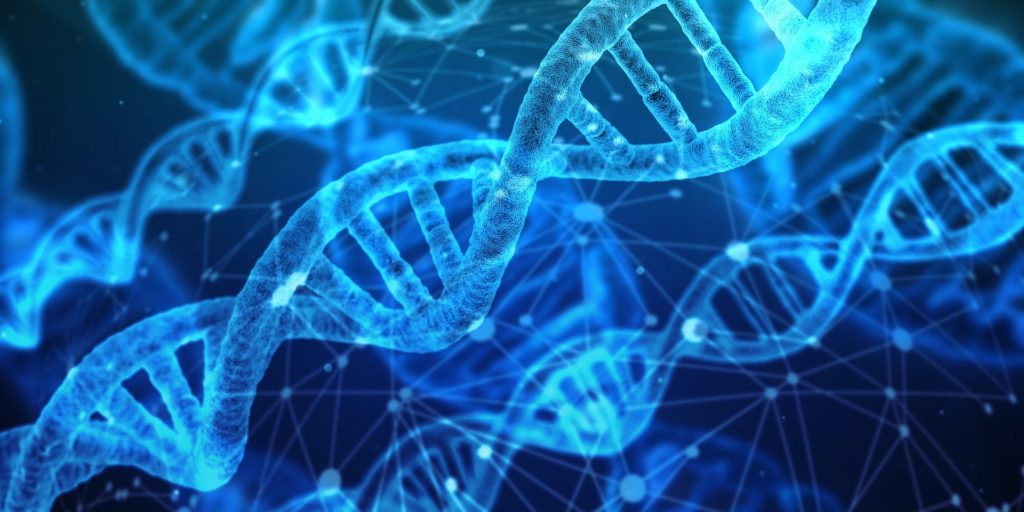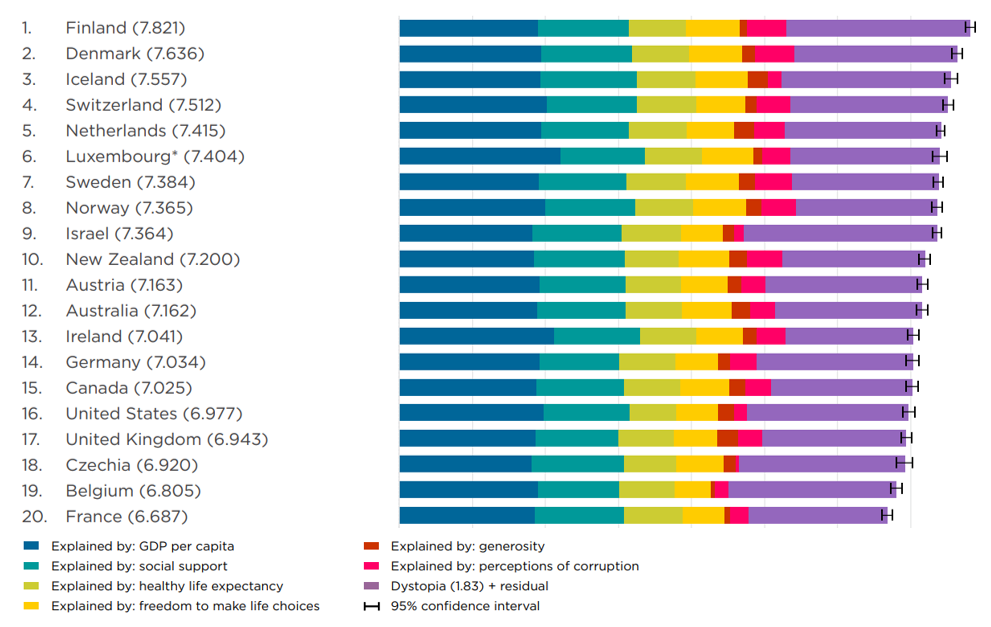Money doesn’t buy happiness. Is that really true? Let’s have a look at 10 less-known facts about happiness no one really talks about while including research from biology, psychology, economics, and philosophy.
If you want to become happier, the first thing you can do is not skip this intro. However, this post is not about providing you with a complete guide to guaranteed happiness. Instead, we will explore some less obvious factors that may be more relevant than expected. For example, you will find answers to the following questions:
- What is the true role of money and genetics?
- Do I need to renounce everything and become a monk to achieve happiness?
- Are smart people less happy?
- Does happiness reduce productivity?
Happiness or subjective well-being (SWB) is undoubtedly a highly individual and loaded term. It means different things to different people in different contexts. However, imagine how unlikely it is that there is no overlap at all between individuals. For instance, most people would argue that health is important for a happy life. Long-term studies also find that personal relationships are crucial for SWB. While those results are no secret anymore, let’s now have a look at the less obvious ones.
1. Money: The Great Social Lie

Money doesn’t buy happiness – is what you may have been told not only once by parents, friends, or teachers before. Ironically, those people often still strive for money at the same time. How can that be? Admittedly, money is unlikely to buy happiness directly. However, the more important part of the truth is that money can get rid of a lot of sources of unhappiness. This is frequently left out or confused. For example, when people say “Freedom is more important than money” they forget about the fact that money can bring a lot of freedom.
If you’re financially free it means you are less stressed since you are less dependent on your job and have the ability to take some time off whenever you want without taking financial risks. In essence, what money truly does is not buying happiness, but rather buying a way out of unhappiness. Hence, it can put you in charge of your life and once things are under your own control, it’s your choice to become happy.
So, should you run after money to become happy? The answer is probably yes. But it is just one step. As long as it doesn’t impair your health or social life by e.g. working extremely long hours, it at least won’t hurt. The reason why striving for money is often negatively perceived is that it is a societal truth, not an individual truth. The society is a group and groups search for consensus. Individuals search for the truth. Therefore, it can be very socially unacceptable to lean against such anchored perspectives in society.
2. Genetics: Happiness is a choice
Well, this is not entirely true. Research suggests that roughly 50% of our happiness is out of our control due to genetic predisposition or external factors. Conversely, this means that the other half is under our control and we are able to increase the level of satisfaction within our biological constraints.

The set point theory or hedonic treadmill is another interesting observation from biology and psychology. It states that humans adapt to new circumstances and thus tend to return to their natural level of happiness. Hence, marrying your soulmate, moving to a warmer location or getting promoted will make you feel better in the short term. In the long run, however, you are likely to get used to the new situation and adapt to your old happiness level.
But there is a hopeful side as people also adapt to negative events such as losing a loved one. However, despite the vast range of studies in this field, it remains unclear whether this adaptation always holds true. Some studies, for example, don’t find full recovery from a divorce or unemployment. Less ambiguous are results on the speed of adaptation. If people adapt, they do it faster after positive and slower after negative events.
Why is it a treadmill? If people constantly try to increase their happiness, they inevitably going to end up at the same level they started (given the theory holds true). This also raises the question of whether happiness is necessarily a state that is independent of the past or if it can also be measured as the cumulative sum of previous events.
To give an example: if you are an average happy person and meet the partner you’re going to marry – you will be significantly happier. Only after some time (maybe a year or more), you are expected to approach the happiness level that you had before meeting that person. But during that time you were quite happy, right? So why shouldn’t that count? Therefore, happiness is not necessarily a state and the border between temporary pleasure and long-term satisfaction is blurred. The good thing is you can decide for yourself.
Happiness depends upon ourselves
— Aristotle
In summary, genetics does affect happiness through a certain set point to which people tend to return after both positive and negative events. However, you shouldn’t be too discouraged since the influence is very limited. Thus, happiness still is a choice. Whether we even have a free will is covered in a different post.
3. Desires: Sometimes, achieving is easier than renouncing them

A desire is a contract with yourself to be unhappy until you get it. Therefore, certain people and literature suggest renouncing any desires and being grateful for what you have. While there is some truth to it, living as a monk might be easier said than done. It neglects the fact that you can’t simply turn off the desiring machine that you are, thus miraculously making all desires disappear. Nowadays, it may even be easier to achieve your desires than to renounce them.
4. Intelligence: Smart people are less happy
The more intelligent you are, the more risks and downsides you see. You understand the world better, you are much more farsighted, and notice the artificial nature of many things, activities, or relationships more easily. This can lead to reduced happiness as it is difficult to calm your inner voice and enjoy the moment. Before wishing you were less smart and wouldn’t care about all the potential threats lurking around every corner, let me give you the good news: you’re smart. And you’re not smart because you are unhappy. Changing the last won’t change the first. Intelligence means you are good at figuring out the truth. This includes figuring out how to become happy. It’s like Naval said in his podcast: If you’re so smart, why aren’t you happy?
5. Health: Healthy People want 1,000 things, Unhealthy people want 1 thing

This is not about telling you how essential health is. It rather shows the advantage of suffering. If you’re in bad health, you automatically focus your energy on the important things. This helps to get a much clearer view compared to a healthy person who is more likely to get distracted by irrelevant stuff. Moreover, you will probably appreciate the world even more once your (health) conditions improve. The resulting gratefulness may create an echo from your environment as people notice your positive attitude.
6. Productivity: Why happiness doesn’t lower your drive
What happens if you achieve all your goals and satisfy all desires and needs? On the one hand, you will probably be happier. On the other, you may think your motivation is going to rapidly decrease. Again, there is some truth to it. Being fully satisfied will make you less likely to run out there and change the world. Similarly to desires, dissatisfaction can be a source of motivation. At the same time, being unhappy can be very inefficient as stress for example prevents you from mentally prioritizing. Eventually, you end up being busy all the time, running from one task to another, without making actual progress.
When looking at successful people such as Warren Buffet, you soon find that the quality of your decisions is everything and hard work alone is not the solution. Making good decisions requires a peaceful mind and concentration which is quite the opposite of stress. Hence, the potential reduction in drive due to happiness is likely outweighed by the increase in quality of your work.
7. Evolution: Pessimism vs. Optimism
Optimism is highly associated with a happier life. From an evolutional perspective, however, we are not designed to be optimists. Think of how your ancestors survived in brutal nature. Let’s say in 1 out of 10 times there is an alligator in the river while you are hunting fish. The optimist will survive 90% of the time while the pessimist will be alive every single time as he always suspects the worst. This natural behavior can be a problem in the current age as we don’t live in wild nature anymore. Nowadays, optimists are not only healthier, but they also tend to be more successful, social, trusting, appreciated by others, and of course: happy. This fact is definitely less known about happiness.
8. Easterlin Paradox: Why Inequality is Poison for Happiness

The economist Richard Easterlin first observed that as the rich countries got richer, they didn’t get happier. This phenomenon comes along with three aspects. First, happiness does not rise indefinitely with income. Especially beyond the point where basic needs are met, the correlation begins to fade indicating decreasing marginal utility of money. Second, relative income is more important than absolute income at a certain point. Thus, social comparisons prevent rising life satisfaction even if the income of everyone increases.
Third, also adaptation may play role as people simply get used to a higher standard of living. While the threshold after which money doesn’t affect happiness is highly individual and adaptation was already covered in point 2, let’s take a look at inequality for a second. Comparing to other individuals may be true on various levels including your personal environment with family and friends, your direct neighbors, your home city, or even the state and country you live in.
The perception of inequality can be more relevant than the actual distribution as it determines the degree of social cohesion and acceptance of the whole system. This is why not only individuals but also policy-makers should take this paradox into account. On individual level, you can achieve greater life satisfaction by not increasing your standard of living even though you got wealthier.
Escaping the social comparison trap is difficult and not solved by being the best in your personal sphere. This normally leads to new comparisons on a “higher” level. For instance, if you live in an average income environment and finally saved enough to afford a new Porsche, you will likely not compare yourself to the average environment anymore. Instead, you will compare to other Porsche drivers or people driving even more expensive cars as you just climbed up the imaginary social latter.
9. Data: How is Happiness measured?
The terms happiness and subjective well-being (SWB) are often used interchangeably. SWB is measured through surveys that usually contain questions such as “All things considered, how satisfied are you with your life on a scale from 1 to 10?”. The scale can vary and is sometimes only from 1 to 4. This of course isn’t an accurate measurement of happiness. The exact moment and the setting when subjects are asked can significantly bias responses. Also, people may have a different understanding of the scale. This is especially true between cultures. Is the difference between 4 and 5 the same as between 9 and 10?
However, despite its limitations, it might be the best estimate that we have. Researchers even found a positive correlation between self-reported happiness and prefrontal brain activity which is the part of the brain that is responsible for positive emotions. Conversely, self-reported data is negatively associated with stress indicators such as heart rate and blood pressure.
Top 20 Happiest Countries in the World

Following the scale logic from 1-10 that is used in the World Happiness Reports, we find mostly Scandinavian countries among the happiest worldwide. Particularly, Finland, Denmark, Norway, Switzerland, Canada, and Iceland are at the top. On the other hand, Afghanistan, Lebanon, Zimbabwe, Rwanda, Botswana, and further African countries are the least happy. Note, smaller countries are statistically more likely to belong to one of the extremes (see law of large numbers).
10. Happiness pill: People always try to reason

The feeling of happiness, pleasure or joy is often caused by hormones such as dopamine and serotonin. Both are created in our brains. So, would a happiness pill triggering those hormones solve the problem and make everyone happier?
If people are unhappy, even genetically, they seem to naturally look for external reasons around them to justify their dissatisfaction. The same could be true for the opposite. If people are happy, they will find reasons for why they feel satisfied. Eventually, they start to see and recognize more positive things in their life. This could even be the case when a happiness pill is consciously taken. Despite the knowledge of the medical effect, people might still be inclined to project their inner feelings to the external world around them and infer causations that may or may not exist.
While this thought process is less scientifically confirmed, it raises the question of how artificial or simulated the nature of happiness can be. What do you think, would it work?
Summary
Happiness is one of the most interdisciplinary fields in science. While it has long been the subject of philosophy, today other fields such as psychology, biology, and economics joined the search to understand happiness. Hence, books can be filled with research results. Here is an overview of the less known facts about happiness covered in this article:
- Money doesn’t buy happiness, it can buy a way out of unhappiness
- Genetics don’t fully determine your happiness level
- Desires can’t be turned off easily. Instead, it may even easier to achieve them rather than to renounce them.
- Intelligent people can figure out how to be happy – because they’re smart
- Suffering can allow you to focus on the important things
- Unhappiness impairs productivity more than happiness
- Pessimism is for survival, optimism is for happiness
- Social comparisons and inequality are poison for life satisfaction
- Measuring happiness is inaccurate
- Happiness can potentially be simulated
How would you measure happiness? Let us know your thoughts in the comments below.
Latest Articles
- Two ways to reveal a self-aware or conscious AI
- Can we visit our neighbor galaxy, Andromeda?
- Top 10 Fascinating AI Applications in 2023
- The Double-Slit Experiment: Everything from A-Z
- AI in Healthcare: Paralyzed Woman speaks again (after 18 years)
- Future Mobility: 3 Reasons for drastic Change (except climate)








You should be a part of a contest for one of the most useful websites on the web. I am going to recommend this website!